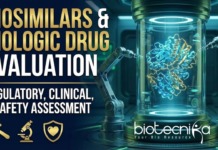Table of Contents
PhD Tools For Biotech & Life Science Candidates.
Embarking on a Ph.D. in Biotechnology or Life Sciences can be a challenging yet rewarding journey. To navigate through the complex world of research, it’s essential to leverage cutting-edge tools and technologies that can streamline processes, analyze data, and enhance productivity. In this article, we present the top 50 tools that will significantly contribute to your success in the realm of biotech and life sciences. These tools range from data analysis platforms to laboratory management software, and their utility covers various aspects of your Ph.D. research. So, let’s dive in and explore these invaluable resources!
-
Mendeley (Free)
Link: www.mendeley.com
Use: Mendeley is a reference management tool that helps you organize, annotate, and collaborate on research papers, facilitating the writing and citation process.
-
EndNote (Paid)
Link: endnote.com
Use: EndNote allows you to manage references, create bibliographies, and collaborate with fellow researchers, making it easier to handle large volumes of literature during your Ph.D.
-
PubMed (Free)
Link: www.ncbi.nlm.nih.gov/pubmed
Use: PubMed provides access to a vast collection of biomedical literature, allowing you to search and retrieve relevant research articles for your studies.
-
Scopus (Paid)
Link: www.scopus.com
Use: Scopus is a comprehensive bibliographic database that covers a wide range of disciplines, enabling you to discover scientific articles, track citations, and evaluate research impact.
-
GraphPad Prism (Paid)
Link: www.graphpad.com
Use: GraphPad Prism is a powerful statistical analysis and graphing software that assists in visualizing and interpreting experimental data. PhD Tools For Biotech & Life Science.
-
R (Free)
Link: www.r-project.org
Use: R is a programming language and software environment for statistical computing and graphics, providing a wide range of tools for data analysis and visualization.
-
Python (Free)
Link: www.python.org
Use: Python is a versatile programming language widely used in scientific research, offering libraries such as NumPy and Pandas for data manipulation and analysis.
-
MATLAB (Paid)
Link: www.mathworks.com
Use: MATLAB is a high-level programming language and numerical computing environment used extensively for data analysis, modeling, and simulation.
-
CLC Genomics Workbench (Paid)
Link: www.qiagenbioinformatics.com
Use: CLC Genomics Workbench is a powerful software suite for analyzing and visualizing next-generation sequencing (NGS) data.
-
Benchling (Paid)
Link: www.benchling.com
Use: Benchling is an integrated platform for molecular biology research, allowing you to design experiments, manage samples, and collaborate with team members.
-
SnapGene (Paid)
Link: www.snapgene.com
Use: SnapGene simplifies the visualization and annotation of DNA sequences, aiding in molecular cloning, primer design, and plasmid management.
-
ImageJ (Free)
Link: imagej.net
Use: ImageJ is an open-source image processing and analysis software that enables quantitative analysis of biological images.
-
Cytoscape (Free)
Link: cytoscape.org
Use: Cytoscape is a network visualization and analysis tool, assisting in the exploration and interpretation of complex biological networks.
-
PyMOL (Paid)
Link: pymol.org
Use: PyMOL is a molecular visualization system that enables the creation of high-quality 3D molecular images and animations.
-
LabArchives (Paid)
Link: www.labarchives.com
Use: LabArchives is an electronic lab notebook (ELN) that allows you to record and manage experimental protocols, data, and observations securely.
-
Benchling Notebook (Paid)
Link: www.benchling.com
Use: Benchling Notebook is a cloud-based platform for organizing and documenting laboratory experiments, facilitating collaboration and reproducibility.
-
Slack (Free and Paid)
Link: slack.com
Use: Slack is a team communication and collaboration tool that simplifies project management, file sharing, and real-time messaging among research team members.
-
Trello (Free and Paid)
Link: trello.com
Use: Trello is a visual project management tool that enables you to organize tasks, track progress, and collaborate effectively with your research team.
-
Google Scholar (Free)
Link: scholar.google.com
Use: Google Scholar is a widely used search engine for scholarly literature, providing access to academic papers, theses, books, and conference proceedings.PhD Tools For Biotech & Life Science.
-
ReadCube (Free and Paid)
Link: www.readcube.com
Use: ReadCube is a reference management platform that enhances your reading experience by offering features like personalized recommendations and annotation tools.
-
Zotero (Free and Paid)
Link: www.zotero.org
Use: Zotero is an open-source reference management tool that helps you collect, organize, and cite research sources seamlessly.
-
Evernote (Free and Paid)
Link: evernote.com
Use: Evernote is a note-taking app that allows you to capture and organize research ideas, notes, and web clippings across multiple devices.
-
Dropbox (Free and Paid)
Link: www.dropbox.com
Use: Dropbox is a cloud storage service that simplifies file sharing, collaboration, and backup, ensuring seamless access to your research data.
-
GitHub (Free and Paid)
Link: github.com
Use: GitHub is a web-based platform for version control and collaboration, enabling efficient management of source code and facilitating open-source contributions.
-
BenchSci (Paid)
Link: www.benchsci.com
Use: BenchSci utilizes artificial intelligence to enhance antibody selection and validation, enabling researchers to make informed decisions about experimental reagents.
-
Geneious (Paid)
Link: www.geneious.com
Use: Geneious is a bioinformatics software platform that provides tools for DNA and protein sequence analysis, phylogenetics, and sequence alignment.
-
GenBank (Free)
Link: www.ncbi.nlm.nih.gov/genbank
Use: GenBank is a genetic sequence database that enables you to search, retrieve, and analyze DNA and protein sequences.
-
NCBI Blast (Free)
Link: blast.ncbi.nlm.nih.gov
Use: NCBI Blast is a sequence similarity search tool that allows you to compare and align nucleotide and protein sequences against various databases.
-
UCSC Genome Browser (Free)
Link: genome.ucsc.edu
Use: The UCSC Genome Browser provides a comprehensive collection of genome assemblies and annotations, enabling the exploration of genomic data.
-
STRING (Free and Paid)
Link: string-db.org
Use: STRING is a database and web resource that analyzes and predicts protein-protein interactions, aiding in the interpretation of molecular networks.
-
Ingenuity Pathway Analysis (Paid)
Link: www.qiagenbioinformatics.com
Use: Ingenuity Pathway Analysis (IPA) helps researchers unravel the biological context of their data by identifying relevant signaling pathways and molecular networks.
-
Ensembl (Free)
Link: www.ensembl.org
Use: Ensembl is a genome browser that provides access to a wide range of species’ genomes, annotations, and comparative genomics tools.
-
BLAST2GO (Paid)
Link: www.blast2go.com
Use: BLAST2GO is a bioinformatics tool that combines BLAST searches, functional annotation, and data visualization to simplify the analysis of sequence data.
-
OpenSPR (Paid)
Link: nicoyalife.com
Use: OpenSPR is a surface plasmon resonance-based instrument used for label-free analysis of biomolecular interactions, aiding in drug discovery and protein analysis.
-
Benchtop NMR Spectrometers (Paid)
Link: www.magritek.com
Use: Benchtop NMR spectrometers offer compact and easy-to-use systems for chemical analysis, structural elucidation, and quality control in research laboratories.
-
LabGuru (Paid)
Link: www.labguru.com
Use: LabGuru is an ELN and laboratory management system that centralizes data, protocols, and inventory, streamlining lab operations and collaboration.
-
LabCollector (Paid)
Link: www.labcollector.com
Use: LabCollector is a comprehensive laboratory management software that allows you to track samples, manage protocols, and streamline workflow in your research lab. PhD Tools For Biotech & Life Science.
-
Benchling Molecular Biology Suite (Paid)
Link: www.benchling.com
Use: Benchling Molecular Biology Suite integrates various molecular biology tools, including primer design, sequence editing, and plasmid mapping, into a single platform.
-
LabX (Paid)
Link: www.labx.com
Use: LabX is an online marketplace where you can buy and sell laboratory equipment, reagents, and consumables, providing cost-effective solutions for your research needs.
-
LabFolder (Paid)
Link: www.labfolder.com
Use: LabFolder is an electronic lab notebook that combines experimental data management, collaboration, and documentation, ensuring data integrity and reproducibility.
-
IDT PrimerQuest (Free)
Link: www.idtdna.com
Use: IDT PrimerQuest is a free online tool for designing custom primers and probes for PCR and qPCR experiments, optimizing primer specificity and efficiency.
-
Benchling Molecular Biology Primer Design (Paid)
Link: www.benchling.com
Use: Benchling Molecular Biology Primer Design tool simplifies the design of PCR primers, helping you create specific and efficient primer pairs for your experiments.
-
CellDesigner (Free)
Link: celldesigner.org
Use: CellDesigner is a modeling and simulation tool for biological systems, enabling the construction and analysis of biochemical network models.
-
NEBcutter (Free)
Link: nc2.neb.com
Use: NEBcutter is a bioinformatics tool that identifies restriction enzyme recognition sites within DNA sequences, aiding in the planning of molecular cloning experiments. -
NEBuilder Assembly Tool (Free)
Link: nebuilder.neb.com
Use: NEBuilder Assembly Tool assists in the design of DNA fragments for seamless assembly, simplifying the construction of plasmids and genetic constructs.
-
Benchling CRISPR Guide Design (Paid)
Link: www.benchling.com
Use: Benchling CRISPR Guide Design tool facilitates the design of CRISPR guide RNA sequences, enhancing genome editing experiments.
-
SnapGene Viewer (Free)
Link: www.snapgene.com
Use: SnapGene Viewer allows you to visualize and explore DNA sequences, plasmids, and annotations, supporting collaborative research and molecular biology education.
-
Unipro UGENE (Free)
Link: ugene.net
Use: Unipro UGENE is an integrated bioinformatics software suite that provides tools for sequence analysis, protein structure prediction, and molecular dynamics simulations.
-
OMERO (Free)
Link: www.openmicroscopy.org
Use: OMERO is an image data management system specifically designed for microscopy images, facilitating image storage, analysis, and sharing.
-
LabSuit (Paid)
Link: www.labsuit.com
Use: LabSuit is a laboratory management platform that enables inventory management, equipment tracking, and sample storage, streamlining lab operations and efficiency.
PhD Tools For Biotech & Life Science Candidates.
As a Ph.D. student in Biotechnology or Life Sciences, leveraging the right tools can significantly enhance your research journey. The top 50 tools above support many areas, including literature management, data analysis, and lab work. These tools help you organize references and handle complex datasets with ease. They also make collaboration simpler and improve your research workflow. With the right tools, you can boost productivity and stay focused on meaningful discoveries. This toolkit prepares you to face Ph.D. challenges and contribute to biotech and life science research.





























